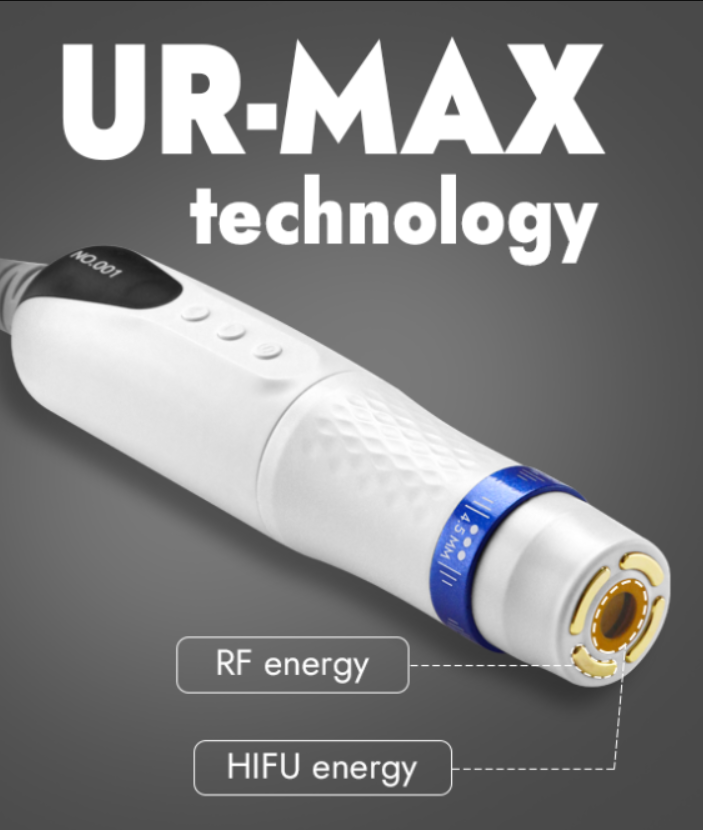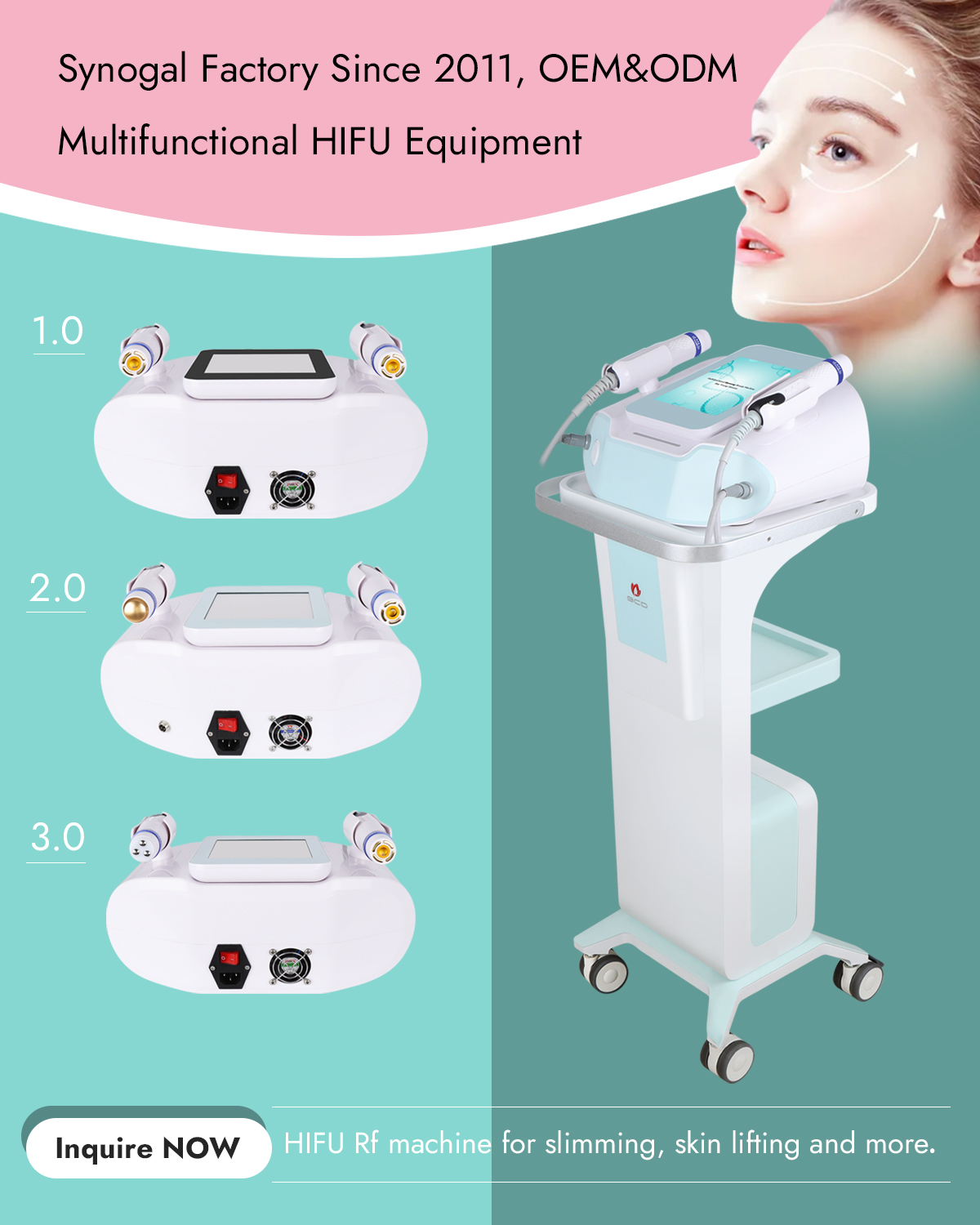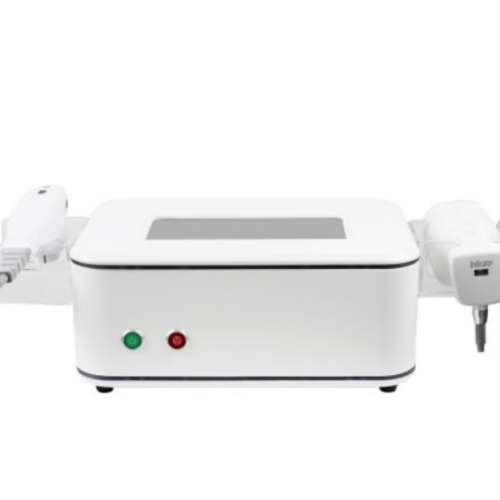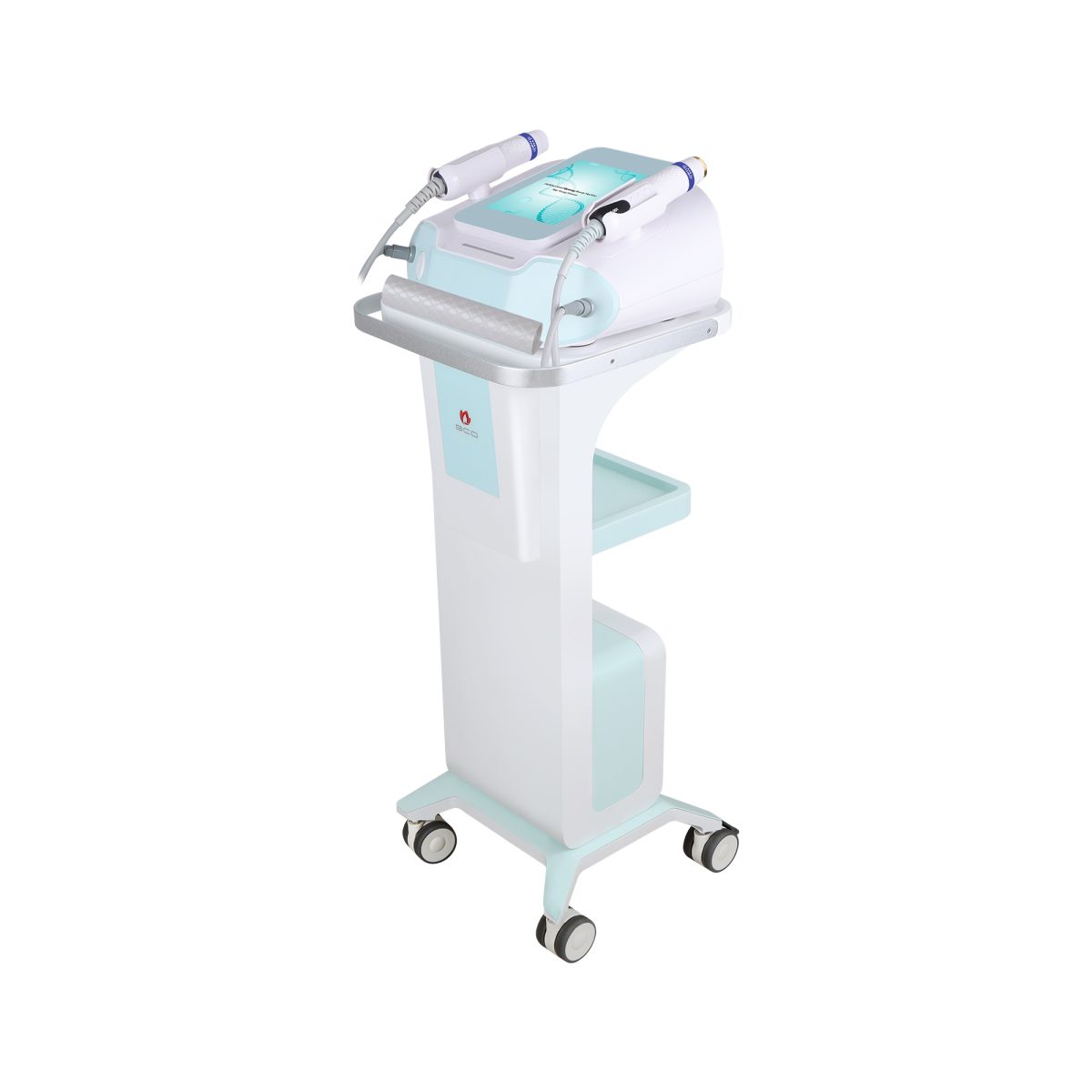In today’s fast-paced world of healthcare and aesthetics, HIFU machines have emerged as a revolutionary technology. With their non-invasive and targeted treatment capabilities, HIFU machines have gained significant popularity among medical and cosmetic professionals. As the demand for these devices continues to rise, the wholesale distribution of HIFU machines presents an enticing business opportunity.
However, entering the wholesale HIFU machine market requires a deep understanding of the industry, market dynamics, and key considerations involved in sourcing, distributing, and supporting these advanced medical devices. This article serves as the ultimate guide for those looking to embark on their journey as wholesale distributors of HIFU machines.
From conducting market research and identifying reliable manufacturers to developing pricing strategies, managing inventory, and ensuring regulatory compliance, this guide will provide you with the essential knowledge and insights needed to navigate the wholesale HIFU machine market successfully.
Whether you are an established distributor in the medical industry or a newcomer seeking to explore the potential of this rapidly growing market, this guide will equip you with the tools and strategies necessary to establish a successful wholesale HIFU machine business.
So, let’s delve into the world of wholesale HIFU machines and uncover the key steps and considerations that will set you on the path to success in this exciting and lucrative industry.
When it comes to researching the market for wholesale HIFU machines, there are several key factors to consider. Here are some steps you can take to conduct market research effectively:
Identify Target Market: Determine the specific market segment you want to target as a wholesale distributor of HIFU machines. This could include healthcare facilities, cosmetic clinics, medical spas, or other professionals in the medical and aesthetic industry. Understanding your target market will help you tailor your research and marketing strategies accordingly.
Analyze Market Demand: Assess the demand for HIFU machines in your target market. Look for data on the number of potential customers, growth trends, and market size. Identify any gaps or unmet needs within the market that your wholesale business can address. Consider factors such as demographics, consumer preferences, and the competitive landscape.
Competitor Analysis: Identify and analyze your competitors in the wholesale HIFU machine market. Examine their product offerings, pricing strategies, distribution channels, and customer base. Determine what sets them apart and identify opportunities where you can differentiate your business. This analysis will help you position your wholesale offering effectively.
Pricing and Profitability: Gain insights into the pricing dynamics of wholesale HIFU machines. Research the average prices in the market and evaluate how your pricing strategy will fit within that range. Consider factors such as manufacturing costs, shipping expenses, and desired profit margins. Striking the right balance between competitive pricing and profitability is essential.
Regulatory Environment: Familiarize yourself with the regulatory requirements and certifications necessary for selling and distributing HIFU machines in your target market. Research the applicable regulations, standards, and compliance procedures to ensure that you can meet all necessary legal obligations. This includes certifications such as FDA approval in the United States or CE marking in the European Union.
Customer Needs and Preferences: Gain insights into the needs and preferences of your target customers. Conduct surveys, interviews, or focus groups to gather data on what features, functionalities, and pricing structures are most important to them. Understanding customer preferences will help you align your wholesale offerings and provide added value to potential buyers.
Distribution Channels: Research the most effective distribution channels for wholesale HIFU machines. Determine whether direct sales, partnerships with distributors, or online platforms are the most suitable options for reaching your target market. Consider the advantages and challenges associated with each distribution channel and select the one that aligns with your business objectives.
Industry Events and Trade Shows: Attend relevant industry events, conferences, and trade shows related to HIFU technology and medical aesthetics. These events provide opportunities to network, learn about the latest industry trends, and establish connections with manufacturers, suppliers, and potential customers. Stay updated on upcoming events in your region or industry niche.
Emerging Markets: Explore the potential of emerging markets for wholesale HIFU machines. Look for regions or countries where there is growing demand for advanced medical and aesthetic technologies. Evaluate factors such as economic growth, healthcare infrastructure development, and regulatory conditions. Consider the potential challenges and opportunities associated with entering these markets.
Stay Informed: Continuously monitor industry publications, market reports, and online resources to stay informed about the latest developments in the wholesale HIFU machine market. Subscribe to relevant newsletters, join industry forums, and follow key thought leaders to stay up-to-date with emerging trends, technological advancements, and market dynamics.
By conducting thorough market research, you will gain valuable insights into the demand, competition, pricing, customer preferences, and regulatory landscape of the wholesale HIFU machine market. This information will guide your business decisions, help you identify opportunities, and position your wholesale operation for success.
When identifying reliable HIFU machine manufacturers for wholesale purposes, it’s important to consider their reputation, experience, product quality, certifications, and customer reviews. Here are a few well-known and reputable manufacturers in the HIFU industry:
Ulthera Inc. (a subsidiary of Merz Pharma): Ulthera Inc. is a leading manufacturer of HIFU machines and is known for its flagship product Ultherapy®. They have a strong presence in the aesthetic industry and offer advanced HIFU technology for non-invasive skin tightening and lifting treatments.
Hironic Co., Ltd: Hironic is a global medical device company specializing in aesthetic and medical equipment. They offer a range of HIFU machines for various applications, including facial rejuvenation, body contouring, and vaginal tightening. Hironic is known for their advanced technology and commitment to quality.
Chongqing Haifu Medical Technology Co., Ltd: Chongqing Haifu is a well-established manufacturer of HIFU machines, particularly in the field of medical applications. They offer HIFU systems for tumor ablation, uterine fibroids, liver tumors, and other clinical treatments. Chongqing Haifu is known for its expertise in therapeutic HIFU technology.
Guangzhou Beautylife Electronic Technology Co., Ltd: Beautylife is a reputable manufacturer of HIFU machines for aesthetic applications. They offer a range of devices for skin tightening, wrinkle reduction, and body contouring. Beautylife focuses on providing high-quality products and reliable customer support.
HIFU Korea Co., Ltd: HIFU Korea is a leading manufacturer of HIFU machines, offering a range of devices for both medical and aesthetic applications. They are known for their cutting-edge technology and commitment to innovation. HIFU Korea’s devices are widely used in various countries and have a strong reputation in the industry.
Doublo-S HIFU by Classys Inc.: Doublo-S HIFU is a product line by Classys Inc., a reputable manufacturer of medical and aesthetic devices. They specialize in advanced HIFU technology for facial lifting and tightening. Classys Inc. is known for its research-driven approach and high-quality products.
- Synogal since 2011 has been working as a hifu machine manufacturer with its focus on global beauty salons, its hifu machines cover 3d, 4d, 5d, 7d, 9d serving for body countouring, , skin firming, face lifting and more. More hifu beauty machines are under R&D to maximize customer’s using experience.
Remember to conduct thorough due diligence and verify the credentials and reputation of any manufacturer you consider. It is also beneficial to communicate directly with manufacturers, request product information, and inquire about their manufacturing processes, quality control measures, and after-sales support. This will help you ensure that you partner with reliable manufacturers that provide high-quality HIFU machines for your wholesale business.
Determining your target customers is crucial for successfully wholesaling HIFU machines. By understanding their specific needs, preferences, and budget considerations, you can tailor your product offerings and marketing strategies to effectively reach and engage your target audience. Here are some steps to help define your target customers:
Market Segmentation: Start by segmenting the market based on the type of customers you want to target. This could include healthcare facilities, cosmetic clinics, medical spas, wellness centers, or other professionals in the medical and aesthetic field. Each segment may have different requirements and purchasing behaviors, so it’s important to focus on specific customer groups rather than trying to serve everyone.
Research and Analysis: Conduct thorough research and analysis to gain insights into your target customers. Understand their demographics, location, size, and specialties. Identify their pain points, challenges, and motivations when it comes to purchasing HIFU machines. Analyze their preferences, such as treatment focus (facial rejuvenation, body contouring, etc.), desired technology features, and budget considerations.
Customer Persona Development: Create customer personas that represent your target customers. These personas are fictional representations of your ideal customers and help you visualize their characteristics and preferences. Include information such as age, gender, profession, goals, challenges, and buying behaviors. This exercise will guide your marketing efforts and enable you to tailor your messaging to resonate with your target audience.
Networking and Relationships: Build relationships with professionals and organizations within your target customer segments. Attend industry events, conferences, and trade shows to network and connect with potential customers. Engage in discussions, seek feedback, and learn more about their needs. Building strong relationships will help you understand their requirements better and position your wholesale offerings effectively.
Value Proposition: Develop a clear value proposition that addresses the specific needs and preferences of your target customers. Highlight the unique features, benefits, and competitive pricing of your HIFU machines. Emphasize how your products can help them improve patient outcomes, increase revenue, or enhance their practice’s reputation. Your value proposition should clearly communicate the value you bring to their business.
Customer Feedback and Iteration: Continuously gather feedback from your customers to refine your understanding of their needs and preferences. Conduct surveys, interviews, or focus groups to gather insights. Ask for feedback on your products, pricing, customer service, and overall experience. Use this feedback to improve your offerings and better meet the expectations of your target customers.
Ongoing Communication and Support: Establish open lines of communication with your target customers. Provide prompt and responsive customer support. Stay updated on industry trends, technological advancements, and regulatory changes that may affect their practice. Regularly share relevant information, educational resources, and updates on new product offerings to keep your customers engaged and informed.
Remember that understanding your target customers is an ongoing process. As the market evolves and customer preferences change, continue to adapt your strategies to meet their needs effectively. By aligning your product offerings, marketing messages, and customer support with the specific requirements of your target customers, you can position yourself as a trusted wholesale provider of HIFU machines in the medical and aesthetic industry.
Determining the pricing and profit margins for wholesale HIFU machines involves considering various factors such as manufacturing costs, overhead expenses, market competition, and desired profitability. Here are some key considerations to help you establish appropriate pricing and profit margins:
Manufacturing Costs: Understand the manufacturing costs associated with HIFU machines. This includes components, labor, research and development, quality control, and any licensing or certification fees. Work closely with your manufacturer to gain insights into the cost structure and ensure that the wholesale price covers these expenses.
Overhead Expenses: Consider your overhead expenses, including rent, utilities, employee salaries, marketing costs, and other operational expenses. These costs need to be factored into the pricing to ensure that your wholesale business remains profitable.
Market Analysis: Conduct a thorough analysis of the market and identify the average prices for HIFU machines. Research what competitors are charging for similar products and services. Take into account the positioning and reputation of your brand, as well as any unique features or added value you offer compared to competitors.
Customer Affordability: Understand the budget considerations of your target customers. Consider the purchasing power and price sensitivity within your target market segment. Ensure that your pricing is competitive and aligns with the value proposition you offer to customers.
Profitability Goals: Determine your desired profit margins based on your business goals and financial projections. Consider factors such as the volume of sales you anticipate, market demand, and the level of investment required to establish and sustain your wholesale operations.
Volume Discounts: Consider offering volume discounts for larger orders. This can incentivize customers to purchase higher quantities, leading to increased sales and potentially higher profit margins. Ensure that your volume discounts are structured in a way that still allows for profitability.
Value-added Services: Explore the possibility of offering value-added services that can justify a higher price point. This could include additional training, technical support, warranty extensions, or exclusive access to certain resources. These value-added services can differentiate your wholesale offering and justify a higher price.
Consideration of Market Trends: Stay updated on market trends and technological advancements in the HIFU industry. Pricing should be periodically reviewed and adjusted based on changes in the market landscape, including the introduction of new technologies or competitive pricing strategies.
Negotiation Flexibility: Maintain some flexibility in pricing to accommodate negotiation with potential customers. Depending on the specific circumstances, you may be able to offer customized pricing based on factors such as the size of the order, repeat business, or unique customer requirements.
Remember, the pricing and profit margins for wholesale HIFU machines should be a balance between remaining competitive in the market and ensuring profitability for your business. It’s important to continually monitor your costs, market conditions, and customer feedback to adjust your pricing strategy as needed.
Marketing and promotion play a crucial role in establishing and growing your wholesale HIFU machine business. Here are some effective strategies to consider:
Develop a Strong Brand Identity: Build a strong brand identity that reflects the value and uniqueness of your wholesale HIFU machines. Create a compelling brand name, logo, and tagline that resonate with your target customers. Establish a consistent brand voice and visual style across all marketing materials and communications.
Website and Online Presence: Create a professional and user-friendly website to showcase your wholesale HIFU machines. Optimize your website for search engines to increase visibility. Include detailed product information, specifications, pricing, and ordering instructions. Utilize high-quality product images and videos to highlight the features and benefits of your HIFU machines. Consider incorporating online ordering and payment options for convenience.
Content Marketing: Develop informative and engaging content related to HIFU technology and its benefits. Create blog posts, articles, and educational resources that demonstrate your expertise and provide value to your target audience. Share this content on your website, social media platforms, and through email marketing campaigns. This positions your brand as a trusted resource and can generate leads.
Social Media Marketing: Leverage social media platforms to promote your wholesale HIFU machines. Identify the social media channels most relevant to your target customers and establish a presence there. Share engaging content, product updates, customer testimonials, and educational materials. Engage with your audience by responding to comments, answering questions, and participating in relevant industry discussions.
Email Marketing: Build an email list of potential customers and existing clients. Send regular newsletters, product updates, and promotions to keep them informed about your wholesale HIFU machines. Personalize your emails and provide valuable content to strengthen customer relationships and encourage repeat business.
Trade Shows and Industry Events: Participate in relevant trade shows, conferences, and industry events to showcase your wholesale HIFU machines. Set up an attractive booth, provide product demonstrations, and engage with attendees. These events offer opportunities to network with potential customers, build partnerships, and stay updated on industry trends.
Influencer Marketing: Collaborate with influencers in the medical and aesthetic industry to promote your wholesale HIFU machines. Identify influencers with a relevant audience and a strong presence on platforms such as YouTube, Instagram, or TikTok. Partner with them for product reviews, demonstrations, or endorsements to increase brand visibility and credibility.
Partner with Key Opinion Leaders: Establish relationships with key opinion leaders in the medical and aesthetic field. These professionals can provide testimonials, case studies, or expert insights on the effectiveness and benefits of your HIFU machines. Their endorsement can enhance your brand reputation and attract potential customers.
Referral Programs: Implement referral programs to encourage existing customers to refer new customers to your wholesale HIFU machines. Offer incentives such as discounts, rewards, or commission for successful referrals. Word-of-mouth recommendations can be highly influential in the medical and aesthetic industry.
Customer Support and Relationship Building: Provide excellent customer support and build strong relationships with your customers. Respond promptly to inquiries, provide technical assistance, and ensure customer satisfaction. Positive customer experiences can lead to repeat business and referrals.
Remember to track the effectiveness of your marketing efforts and adjust your strategies as needed. Regularly review analytics, measure ROI, and seek feedback from customers to continuously improve your marketing and promotion activities.
Regulatory compliance is essential when wholesaling HIFU machines to ensure the safety and legality of the products. Here are some important steps to ensure compliance:
Understand Local Regulations: Research and understand the specific regulatory requirements for medical devices, including HIFU machines, in your target market. Different countries and regions may have their own regulatory frameworks, such as the FDA in the United States, CE marking in the European Union, or other local authorities. Familiarize yourself with the applicable regulations and ensure that your HIFU machines meet the necessary standards.
Work with Certified Manufacturers: Collaborate with HIFU machine manufacturers that have a track record of compliance with regulatory requirements. Manufacturers should have the necessary certifications and approvals, such as ISO 13485 certification for medical devices or other relevant quality management systems. Verify that the manufacturers’ products have obtained the required regulatory clearances or approvals in the target markets where you plan to distribute the HIFU machines.
Documentation and Labeling: Ensure that all necessary documentation is in place for the HIFU machines you distribute. This includes product specifications, user manuals, safety information, and any required labeling or markings. Make sure the labeling is clear, accurate, and in compliance with the regulatory requirements of your target market. Work closely with manufacturers to obtain the required documentation and ensure its accuracy.
Adverse Event Reporting: Establish a system for tracking and reporting adverse events or product malfunctions related to the HIFU machines you distribute. Promptly report any incidents or issues to the appropriate regulatory authorities as required. This demonstrates your commitment to product safety and compliance.
Post-Market Surveillance: Implement a post-market surveillance system to monitor the performance and safety of the HIFU machines in the market. Regularly collect and analyze data on product performance, customer feedback, and any adverse events. Address any safety concerns promptly and take appropriate actions, such as product recalls or corrective measures, if necessary.
Stay Updated on Regulatory Changes: Monitor regulatory developments and changes in the medical device industry. Regulatory requirements may evolve over time, and it is important to stay informed about any updates or new guidelines. Establish relationships with regulatory bodies or seek guidance from consultants specializing in medical device regulations to ensure ongoing compliance.
Training and Education: Provide training and education to your customers on the regulatory requirements related to the use and distribution of HIFU machines. Help them understand their obligations and responsibilities in terms of compliance and reporting. This can foster a culture of compliance within your customer base and strengthen your reputation as a responsible wholesaler.
By ensuring regulatory compliance, you not only meet legal requirements but also build trust with your customers and ensure the safety and effectiveness of the HIFU machines you distribute. Stay proactive in monitoring and adapting to regulatory changes to maintain compliance in the dynamic landscape of the medical device industry.
Best hifu machine for wholesale 2023
- Facial lifting & skin firming, skin rejuvenation
- Non-surgical and non-invasive treatment
- No downtime, no pain, and no visible mark
- FDA certified: safer, stable
Multi-depth Treatment: The 9d hifu machine for wholesale may allow for treatment at different depths within the skin, targeting multiple layers to achieve a more comprehensive and customized treatment. This can provide a more precise and tailored approach to address specific concerns.
Multi-line Treatment: The 9d hifu machine might offer the ability to deliver ultrasound energy through multiple lines or rows of transducers simultaneously. This can help improve treatment efficiency and reduce overall treatment time.
Combination Treatments: A 9D HIFU beauty machine could potentially combine HIFU technology with other modalities or technologies, such as radiofrequency (RF) or laser, to provide enhanced results. This combination approach may allow for addressing multiple skin concerns in a single treatment session.
Advanced Treatment Areas: The 9d hifu machine might have specialized transducers or handpieces designed to target specific areas of the face or body, including hard-to-reach or sensitive areas. This can enable more precise treatment and expand the range of areas that can be effectively treated.
UR-MAX
- HIFU and RF collected in one probe, the world-first beauty equipment with hifu and rf techs built in 1 which unleashes the max performance for slimming, firming, lifting, tightening, this is the hifu beauty equipment you’ve been waiting for.
Meet the magic how UR-MAX works


Combining RF (Radiofrequency) and HIFU (High-Intensity Focused Ultrasound) technologies in a single device can offer several potential benefits for aesthetic treatments. Here are some key benefits:
Enhanced Skin Tightening: RF and HIFU technologies both have the ability to stimulate collagen production in the deep layers of the skin. By combining these technologies, you can potentially achieve more significant skin tightening effects compared to using each technology individually.
Synergistic Effects: RF and HIFU work through different mechanisms to target the skin and underlying tissues. RF heats the tissues through electrical currents, while HIFU delivers focused ultrasound energy to induce thermal coagulation. The combination of these two modalities can create synergistic effects that may lead to improved treatment outcomes.
Customizable Treatment Depth: HIFU technology allows for precise depth control, allowing practitioners to target specific layers of the skin and underlying tissues. By combining RF and HIFU, practitioners can further customize the treatment by adjusting the energy levels and depths of both modalities to address specific concerns in different areas of the face or body.
Versatility: A device that combines RF and HIFU technologies can offer versatility in aesthetic treatments. It can be used for various indications such as skin tightening, wrinkle reduction, facial contouring, and body sculpting. The ability to address multiple concerns with a single device can be advantageous for both practitioners and patients.
Non-Invasive or Minimally Invasive: RF and HIFU treatments are generally considered non-invasive or minimally invasive, depending on the specific device and treatment settings. This means that the combination of RF and HIFU can potentially provide effective results without the need for surgery or extensive downtime.
Safety and Precision: RF and HIFU technologies have a well-established safety profile when used properly. These technologies can selectively target the treatment area without causing damage to surrounding tissues. The combination of RF and HIFU allows for precise energy delivery and control, minimizing the risk of adverse effects.
Similar beauty machine product that works like hifu machine
There are several non-invasive and minimally invasive aesthetic devices that offer similar skin tightening and rejuvenation effects as HIFU machines. Some alternatives to HIFU machines include:
Radiofrequency (RF) Devices: RF devices use radiofrequency energy to heat the deep layers of the skin, stimulating collagen production and tightening the skin. These devices can be used for facial and body treatments and are effective for skin tightening, wrinkle reduction, and cellulite improvement.
Laser Skin Rejuvenation Devices: Laser devices utilize focused laser energy to target specific areas of the skin, promoting collagen production and tightening. Different types of lasers, such as fractional lasers or ablative lasers, can be used for various skin concerns like wrinkles, fine lines, scars, and uneven pigmentation.
Microfocused Ultrasound Devices: These devices use ultrasound technology, similar to HIFU machines, to penetrate deep into the skin and stimulate collagen production. They can be used for facial and neck tightening, as well as for improving the appearance of fine lines and wrinkles.
Cryolipolysis Devices: While not specifically for skin tightening, cryolipolysis devices, also known as fat freezing devices, can be used for body contouring and reducing localized fat deposits. These devices use controlled cooling to target and destroy fat cells, resulting in a more contoured appearance.
High-Intensity Light Devices: Some devices use high-intensity light, such as intense pulsed light (IPL), to target various skin concerns including pigmentation issues, vascular lesions, and skin rejuvenation. These devices can improve overall skin tone and texture.
It’s important to note that while these devices offer similar effects to HIFU machines, they may work through different mechanisms and have varying levels of effectiveness. It’s advisable to consult with professionals and conduct thorough research to determine which alternative device best suits your specific needs and desired outcomes.


